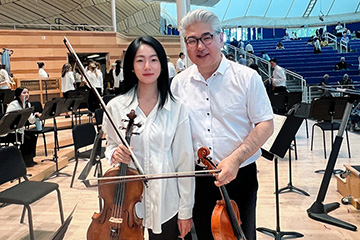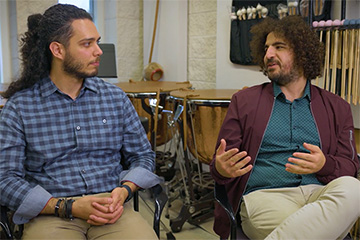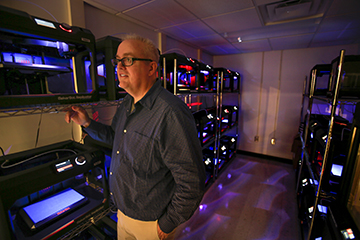Department of Theatre and Dance Celebrates Gender-Inclusive Casting
The effects of the pandemic, Black Lives Matter protests, LGBTQ advocacy, and the #MeToo movement have changed the art of theatre drastically over the last decade, urging theatre makers around the world to recognize the damaging practices of the past, and correct them to better serve their diverse talent pool and audiences.
“This drive toward adopting more open and inclusive practices at CMU is coming directly from the students themselves,” says Department Chair, Keeley Stanley-Bohn. “They are eager to change the profession for the better, and it’s the responsibility of the Theatre and Dance faculty to lead them, so when they graduate, they can make an impact on the theatre community around the world.
In addition to department efforts around diversity and consent in the theatre, Transgender inclusion in the classroom and in productions has been a specific priority for the CMU Department of Theatre and Dance. Shira Helena Gitlin, a trans nonbinary director, dramaturg, and gender consultant, worked with the staff and faculty over the summer to educate on appropriate language and practices as well as to further the conversation around gender-inclusive casting.
According to a recent British Vogue article by Radhika Seth, gender-inclusive casting can “mean offering parts written for men to women, and ensuring that gay, transgender and disabled actors have opportunities to play people from their own communities as well as those outside of it. The goal is to address the systemic inequalities that exist […] by providing marginalized groups with more work and preventing both the whitewashing and straightwashing of prominent roles.”
By casting CMU’s upcoming production of Kinky Boots with gender-inclusivity in mind, students can feel more confident to pursue roles which align with their gender identity. “Being cast as a role that matches my gender identity makes me feel seen and respected not only as an actor but as a person,” says Peter Bileth who plays the role of George, “Having a team that is so kind and willing to accommodate the character’s costume, makeup, or voice for my comfortability and range is wonderful. Overall, […] it helps me feel more confident in myself and who I am.”
A student who prefers to remain anonymous has this to say, "As someone who is non-binary it's really affirming to receive roles that are both male and female. This was an amazingly positive aspect to me while I was transitioning and made me feel understood and cared for by my directors and peers. The best feeling was during a curtain call in my first male role, I received one of the loudest cheers that night and left the auditorium feeling uniquely and beautifully me.”
Gender-inclusive casting practices can have a positive effect not only on the actors cast, but also on their telling of the story. “It’s more than just a character to us,” says Justin Rivers, professional guest artist playing Lola, “If we are actively going in for a specific role, it’s most likely because we resonate with that character’s experience; no matter what the gender is. Not considering these performers and casting them aside is a prime example of you ignoring a truth that is right in front of your eyes.”
“We are proud of our students for continuing to challenge the standards of theatre,” say Stanley-Bohn, “We look forward to seeing their perspective and passion on stage in Kinky Boots!”




